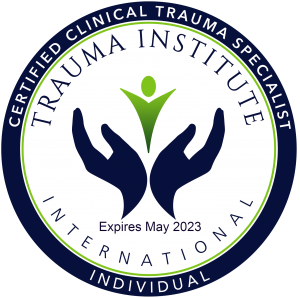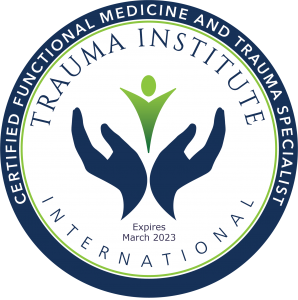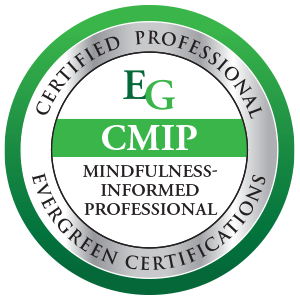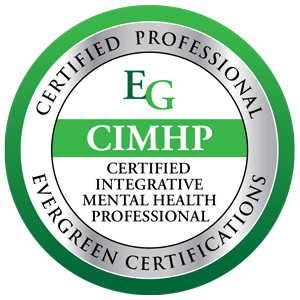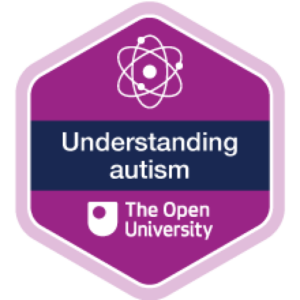Post Traumatic Stress Disorder or PTSD & Complex PTSD
Post traumatic stress disorder results when a person suffers a traumatic experience or experiences and therefore is left with a range of cognitive, behavioural and coping problems.
PTSD may for example be caused by an assault or traumatic event. Complex PTSD is often caused by a period of abuse, whether sexual, physical, emotional or psychological (including gas lighting).
The NICE (National Institute for Clinical Excellence) guidelines for PTSD and C-PTSD treatment can be found HERE
DO NOT consult a non specialist therapist or any therapist proposing immediately addressing the trauma with any form of regression (including hypnosis, shamanic processing or EMDR) without the required initial stage preparation, and do not agree to Trauma Debriefing! A full explanation can be gained from reading the NICE guidelines on safe practice (link above).
The methods used by Stuart are part of a “manualised” (tried and tested) trauma treatment method as required by NICE, and it should be noted at the end of the above linked document NICE clearly define a suitable practitioner for treating trauma as: “A person with mental health training, particularly in PTSD, who also has training and competence in delivering interventions for PTSD“. In other words it is not enough just to be a “counsellor”, “therapist”, “coach” etc, you should have specific specialist training in Trauma work.
Stuart is a Certified Clinical Trauma Practitioner, not just a therapist from any one model, and specialises in trauma and complex trauma.
Stuart is a Certified Trauma Specialist:
Certified in Trauma Specialism (CCTP-I & II, & CCTS-I)
Certified in Complex Trauma and Dissociative Disorders
Certified in Specialised use of Hypnosis, Neurology, and Mind-Body Work in treating Trauma.
Certified in Functional medicine for Trauma Treatment
Graduate of the Trauma Research Foundation Certificate of Traumatic Stress Studies
(Post Graduate under Bessel Van Der Kolk)
What causes PTSD Post Traumatic Stress Disorder?
Generally it is accepted that there are two main types of PTSD, those caused by individual traumatic events, such as a terror attack, rape, assault or bereavement, and those caused by a series of events over time, such as being in a conflict zone, being abused or being forced to survive a period of extreme circumstances. The second type is called Complex PTSD. Complex PTSD is far more complex as the name suggests, because it combines elements of different traumatic incidents over time, both those that are hurtful (harm), and those that are neglectful (lack).
What are the symptoms of Post Traumatic Stress Disorder?
There are generally two main kinds of symptoms resultant from PTSD.
1. General overall presentation: This might include high stress or anxiety levels including anxiety disorders, anger management issues, depression, insomnia, irritability, paranoia, heightened threat level estimation, hyper vigilance, social phobia, seclusion, disassociation, personality splintering and problems forming healthy relationships. This is no means a comprehensive list.
2. Reactive symptoms which are triggered by elements of the trauma or the environment in which the trauma occurred. These might include sounds, smells, tastes, colours, people who look a certain way and phobias. People’s actions can also be triggers, for example an abuse survivor may misinterpret another person being kind as the beginnings of manipulation, or a gentle touch as a precursor to sexual assault. Again this is no means a comprehensive list.
People with complex PTSD can have pervasive feelings with no obvious cause (e.g. sense of dread or fear or anxiety), and often have more than one other diagnosis since sufferers are often initially diagnosed with a symptomatic condition like depression or anxiety. Sufferers also often have disassociation conditions such as NEAD, fainting or different / splintered personalities. Disassociation is sometimes seen as a separate form of Complex PTSD.
People with PTSD and Complex PTSD often have physical symptoms and conditions which are caused by long term stimulation of neurological connection between mind and body through the central nervous system including polyvagal, hormone and brain chemistry changes including cortisol levels, and carrying tension and being in repeated “fight and flight” states.
It is very common for complex PTSD sufferers to have a number of symptoms or diagnosis collected over time as they try to understand what is exactly wrong. Long term depression, anxiety disorders, personality disorders including BPD, pain conditions, IBS and other stress / physical tension related disorders are often present. In analytical therapy these are often referred to as “surface conditions”, which are caused by the deeper condition of Complex PTSD, or attachment disorders, known as the “underlying condition”. In other styles the presence of multiple diagnosis is referred to as co-morbidity.
Effects of Post Traumatic Stress Disorder
As well as experiencing the above symptoms, and those like them, the sufferer may become withdrawn, de-socialised, avoid people and cease to fully function. The effects tend to feedback and worsened – as the effects of social isolation worsen the way the person feels, so their behaviour might become less function, just as one example. Relationships tend to be particularly difficult with rejection and trust issues likely and the people around the sufferer also becoming severely effected by the condition.
Typically effects include:
- Affect regulation issues: the inability to handle attachment and self soothing situations where ideally one might normally move past fear, and make oneself feel better. This turns up as fear, anxiety or depression.
- Self esteem: Without the right attachment and soothing experiences one may not develop a positive self esteem.
- Relationship issues: With trauma and disruption, attachment and self esteem issues impact on one’s ability to maintain healthy relationships.
- Other conditions: The dysregulation caused by trauma means that the person remains in a dominant sympathetic (aroused and fearful) state for long periods of time. This causes long term tension, hormone imbalances, neuro transmitter imbalances, chronic bodily inflammation, chronic pain, immunosystem effects such as worsened histamine responses, sleep disorders, poor nutritional absorption, poor lifestyle balance, self medication addictions, poor physical activity levels. Untreated C-PTSD has been linked to a strong correlation with shortened lifespans.
Treatment methods
Because PTSD has so many related conditions, such as anxiety, depression, phobias, stress, relationship difficulties and so on, one treatment approach alone is not always effective. PTSD is often addressed with forms of EMDR, analytical hypnotherapy, parts work, attachment based psychotherapy, interpersonal psychotherapy, mindfulness and psychoanalysis.
It is recognised that typical PTSD reacts better to single form treatments than complex PTSD, which benefits from a more integrated and holistic approach because of it’s complexity. Typical PTSD often responds well to hypnotherapy and EMDR based treatments. Complex PTSD may react badly to any attempt to force rapid change with methods like EMDR or Hypnosis, and a more patient and holistic response is vital, working through recovery stages. The most notable reason for this is the dysregulation usually seen at first presentation by the client. In a dysregulated state the client can not engage in complex cognitive processes such as CBT or narrative therapy, and may be worsened by recall based therapies like hypnotic regression and EMDR. Dysregulation and neuro feedback types processes in trauma are discussed in detail in Gerge 2020*: This is also reflected in the information on anxious and complex PTSD cases in the NICE guidelines.
- Pre therapy – building rapport and safety with the therapist and therapy setting
- Stabilisation and Psycho Education, learning to self regulate
- Somatic processing, deeper investigation and cognitive restructuring
- Reintegration and learning to live fully / thrive.
Each of the elements in itself has recommended approaches. For example NICE recommend cognitive behavioural approaches for anxiety and depression, and CBASP has excellent results with long term depression (see CBASP pages for references). Anxiety UK recommend counselling, hypnotherapy and CBT for anxiety and phobia issues. Hypnotherapy, mindfulness and relaxation methods are effective in many stress related conditions.
*Gerge Anna (2020) “What neuroscience and neurofeedback can teach psychotherapists in the fieid of complex trauma: Interoception, neuroception and the embodiment of unspeakable events in treatment of complex PTSD, dissociative disorders and childhood traumatization”.
European Journal of Trauma & Dissociation, Elsevier.
Trauma debriefing is prohibited by the NICE guidelines. Only in late stage 2 or stage 3 is it clinically appropriate to use very careful processing, usually using relaxation and or bi lateral eye moment based methods. it is NOT THERAPEUTIC to REMEMBER EVERYTHING. C-PTSD is about the meaning gained from a series of events, you do not need to remember or process everything and it is not therapeutic, in fact it is potentially harmful!
Other methods include using parts work based visualisation methods such as “inner child” (which sounds strange but which actually uses a symbolic character to represent your subconscious), or even shamanistic journey which is another symbolism based way of processing. These may sounds terribly “alternative”, but both methods are merely using rich symbolism and imagery to carry our a psychologically therapeutic process of processing and understanding.
Some practitioners (including Stuart) also use fully , situational analysis, narrative therapy, intepersonal therapy biofeedback based methods where the person is taught to control physical and mental responses and mindfulness.
Polyvagal theory has been able to explain much of the neurology behind the different PTSD anxiety responses and has provided new methods of employing psychotherapy and conversational hypnosis based techniques. Stuart has completed specialised training: The neuro-physiology of trauma, attachment, self regulation and emotions: Clinical applications of the Polyvagal theory. (CPD) (Cert)
Because of the varied nature, causes and presentations of PTSD it is important for the practitioner to be multi-skilled and not just have one way of doing it, since individual clients are varied.
Integrated Mind-Body Psychotherapy Model for Complex PTSD
Complex PTSD is often highly embodied, in other words there are many somatic or physical symptoms cause by the repeated and complex patters of trauma, often from years ago. Complex PTSD is also often complex and inter-weaved with the individual’s psychological development, learning experiences and personal development. Stuart has completed certified CPD training in this model of therapy approach. The Integrated Mind-Body Psychotherapy model combines are series of different therapy competencies in order to address this complex presentation:
- Psychodynamic / Psychoanalysis: In particular relational and interpersonal
- Parts Work: In particular Ego states and disassociation. Based on attachment theory, putting the parts back together if “shattered”, or establishing the missing parts if “disrupted”.
- EMDR / MEMI Models: Adaptive information processing, Bilateral Stimulation (visual, physical or sometimes auditory), Dual Attention (aware of “then” and “now”), crossing left-right zones of brain and linking, and other methods.
- Analytical Hypnotherapy: Parts work, analytic trauma processing (similar to EMDR), inner child, animal guardian and other visualisation methods. This is a form of narrative therapy
- Somatic therapy: Embodiment interventions, including body scanning, body mapping, somatic anchoring, mindfulness, analytic hypnosis, movement therapies, body language including posture analysis, NLP mirroring, leading and pacing, mindful self touch.
- CBT: relationship with thoughts and behaviours, including self management during recovery, including understanding negative loops.
- DBT: Distress Tolerance and Emotional Regulation (from Mindfulness & psycho-education)
- CAM (complementary and alternative medicine): Hypnotherapy, NLP resource anchoring, grounding, Mindfulness, Yoga, Chi Gung, Nutrition, Naturopathy, Self Care, Massage, Acupressure etc

Complex PTSD is a serious condition which does not clear up quickly, and which normally requires careful, gentle and holistic recovery at a pace dictated by the client’s needs. Complex PTSD is largely a developmental disorder because the trauma and “lack” combine to interfere with normal development, especially in regard to interpersonal relationships and personal self regard.
It is now widely accepted that “talking therapy” alone is not as effective as combining talking and somatic body work. This is because the trauma often is held around the body in different symptoms such as pain, fear and tension. Addressing this requires listening to the body itself through feeling, rather than rushing to use verbal language. Generally the treatment of Complex PTSD is thought to have stages: with the first stage about management of symptoms, education and stabilisation. Then deeper exploration of both trauma events, attachment issues, developmental issues and learnt perceptions. Finally integration is where the client puts together the various lessons and pieces. It is this wide range of combined therapy needs that mean that you are advised to seek a specialised trauma therapist, and not just a well qualified therapist from any one discipline.
Positive Outcomes: Post Trauma Growth
People have different initial or surface goals for recovery, such as NOT having a certain symptom. Some other goals however are:
- Enhanced Personal Relationships
- Increased willingness to ask for and accept assistance
- Increased willingness to be vulnerable
- Increased recognition of social supports that were previously overlooked
- Increased appreciation of life
- Increased ability to “take it easy”
- Newly found interests or passions
- Spiritual awareness
A comprehensive study of the different main treatments for Trauma by Watkins Sprang and Rothbaum 2018 compared a wealth of research into the various different recommended therapy models, including eclectic (integrative) psychotherapy, cognitive behavioural therapies, interpersonal psychotherapies, desentisation methods like EMDR and even person centred methods (counselling). The results clearly indicate benefits of all the above methods, but what stands out is that trauma is not a “one size fits all” condition. Wahbeh, Senders and Neuendorf 2014 compiled evidence on complementary therapies in regard to treating trauma and found evidence of a number including hypnotherapy being positive. Lynn et al 2012 conclude that Cognitive Hypnotherapy, Mindfulness and Acceptance based treatment approaches are significantly effective with trauma treatment. Leading experts the Arizona Institute of Trauma recommend an integrative approach over 4 stages: Relationship building with the therapist, psychoeducation and self regulation, trauma resolution and monitoring, post trauma growth. Generally after the first relationship building stage a three stage approach to treatment is recommended and is discussed at length in different ways HERE and is discussed in detail in relation to Complex Trauma and Disassociative Disorders by the ISSD HERE
Who provides PTSD treatment?
Stuart is a Certified Clinical Trauma Professional And Complex Trauma & Dissociative Disorders Professional (CCTP I & II), and is also certified in the specialist use of Hypnosis, Neuroscience and mind/body approaches in Trauma treatment. He is a trained clinical psychotherapist, hypnotherapist and analyst (psychodynamic and cognitive behavioural) who is trained in a range of PTSD therapy methods including “trauma run” hypnotherapy processes, and has completed advanced CPD training in Complex PTSD and disassociation disorders. He is also trained in mindfulness, visualisation, NLP, psychotherapy, hypnosis based parts work, attachment theory, somatic work, and situational analysis methods of analysis and debriefing. Stuart is professionally registered as a hypnotherapist, psychotherapist, life coach, analyst, counsellor and complementary therapist. He is on the CNHC Professional Standards Authority Accredited Register (hypnotherapy).
Stuart has also completed CPD (continuous professional development) training post qualification in Relational EMDR and Integrated Mind-Body Psychotherapy Model interventions. Stuart has studied intensive somatic processing including using hypnosis, mindfulness and somatic observation, as well as through interpretative Chi Gung. He trained in Naturopathy, Acupressure, EFT, Nutrition, Chi Gung and a range of other complementary therapy methods. He has several competency certifications in Clinical application of Mindfulness for Clients and Groups.
Stuart is also a former member of the Territorial Army and has signed the official secrets act. He accepts ex military and serving military personnel as clients and has worked with personnel from a number of services including special forces.
Stuart is also LGBQ*, Kink* and diversity trained and often works with clients whose sexuality, culture, identity or faith are related to the trauma experience. Stuart is neuro-divergent and is ASD and ADD specific advanced training.
Stuart has also worked with many survivors of both domestic child abuse (including incest) and domestic violence / abuse.
More on stages of therapy in Trauma therapy (for interest and reference)
While the specific stages and terminology might vary depending on the therapeutic approach, here’s a general outline of the stages involved in trauma therapy:
1. Safety and Stabilization:
- Establishing Safety: The initial focus is on creating a safe and trusting therapeutic relationship and environment. This involves building rapport with the therapist, establishing clear boundaries, and ensuring the individual feels comfortable and secure.
- Symptom Reduction: The therapist helps the individual identify and manage overwhelming emotions and distressing symptoms, such as anxiety, flashbacks, nightmares, and hypervigilance. This may involve teaching coping skills like grounding techniques, relaxation exercises, and mindfulness practices.
- Developing Resources: This stage involves identifying and strengthening internal and external resources that can support the individual’s healing journey. This might include connecting with supportive friends and family, engaging in self-care activities, and building a sense of self-efficacy.
2. Remembrance and Mourning:
- Trauma Processing: In this stage, the individual begins to process their traumatic experiences in a safe and controlled manner. This may involve revisiting memories, exploring emotions, and making sense of what happened.
- Emotional Expression: The therapist provides a safe space for the individual to express and work through a wide range of emotions related to the trauma, including fear, anger, sadness, and shame.
- Challenging Negative Beliefs: The therapist helps the individual identify and challenge negative thoughts and beliefs about themselves, the world, and others that may have developed as a result of the trauma.
3. Reconnection and Integration:
- Rebuilding Connections: The focus shifts towards reconnecting with oneself, others, and the world. This may involve rebuilding trust, improving communication skills, and developing healthier relationships.
- Finding Meaning: The individual explores ways to find meaning and purpose in their experiences and to integrate the trauma into their life narrative.
- Developing New Skills: The therapist helps the individual develop new skills and strategies to manage triggers, cope with challenges, and prevent re-traumatization.
4. Consolidation and Resolution:
- Strengthening Resilience: The individual continues to build resilience and develop coping mechanisms to navigate future challenges.
- Moving Forward: The focus is on consolidating the gains made in therapy and moving forward with a renewed sense of hope and purpose.
- Self-Care and Growth: The individual prioritizes self-care, continues to develop healthy habits, and focuses on personal growth and well-being.
It’s important to remember that the stages of trauma therapy are not always linear. Individuals may move back and forth between stages as they process their experiences and develop coping skills. The duration of each stage can also vary depending on the individual’s needs and the complexity of their trauma.
More on physiological effects of trauma and common medical diagnosis for people with complex trauma
Complex trauma can significantly impact both physical and mental health, leading to a range of medical conditions. Here are some of the common medical conditions associated with complex trauma:
Mental Health Conditions:
- Post-traumatic stress disorder (PTSD): Characterized by intrusive memories, avoidance behaviors, negative thoughts and mood, and changes in arousal and reactivity.
- Complex post-traumatic stress disorder (C-PTSD): Similar to PTSD but with additional symptoms like difficulties with emotional regulation, distorted self-perception, and problems with relationships.
- Depression: Persistent sadness, hopelessness, loss of interest, and fatigue.
- Anxiety disorders: Generalized anxiety, panic attacks, and social anxiety.
- Substance use disorders: Using substances to cope with trauma-related distress.
- Dissociative disorders: Disconnection from oneself or reality.
- Personality disorders: Borderline personality disorder and others.
Physical Health Conditions:
- Cardiovascular issues: Heart disease, hypertension.
- Gastrointestinal problems: Irritable bowel syndrome (IBS), inflammatory bowel disease (IBD).
- Immune system dysfunction: Weakened immunity, autoimmune diseases.
- Metabolic disorders: Diabetes, obesity.
- Chronic pain: Fibromyalgia, headaches.
- Respiratory issues: Asthma, chronic obstructive pulmonary disease (COPD).
- Sleep disorders: Insomnia, sleep apnea.
- Gynecological issues: Menstrual irregularities, endometriosis.
- Other: Skin conditions, increased cancer risk, premature aging.
Important Considerations:
- Mind-body connection: Complex trauma affects both mental and physical health, highlighting the importance of integrated treatment approaches.
- Overlapping symptoms: Some symptoms of trauma can mimic or overlap with symptoms of other medical conditions, making diagnosis and treatment complex.
- Individualized care: Treatment should be tailored to the individual’s specific needs and may involve a combination of psychotherapy, medication, and lifestyle changes.
- Trauma-informed approach: Healthcare providers should adopt a trauma-informed approach that recognizes the impact of trauma and prioritizes safety and empowerment.
If you or someone you know is experiencing symptoms related to complex trauma, seeking professional help from a qualified mental health professional or healthcare provider is crucial. They can provide appropriate assessment, diagnosis, and treatment to support healing and recovery.
Key Words
Post traumatic Stress Disorder, PTSD, Complex PTSD, Stress, Trauma, abuse, violence, abuse victim, abuse trauma, war trauma, battle trauma, military trauma, accident trauma, bereavement trauma, relationship trauma, trauma of assault, trauma of near death, somatic therapy, attachment therapy, parts therapy, trauma hypnosis, parts work psychotherapy, analytical hypnotherapy, trauma processing, complex PTSD, complex Trauma, CSA trauma, psychotherapy, CBT, hypnotherapy, psychoanalysis, counselling, trauma debriefing, CBASP, situational analysis, anger management, stress management, somatic processing, somatic therapy, counsellor, psychotherapist, polyvagal theory, psychologist, psychoanalyst, hypnotherapist, Edinburgh. Complex trauma and PTSD in Edinburgh.
Contact via the contact us page HERE


